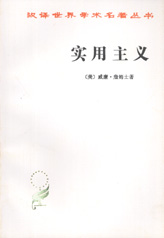牛津实用英语语法-第18章
按键盘上方向键 ← 或 → 可快速上下翻页,按键盘上的 Enter 键可回到本书目录页,按键盘上方向键 ↑ 可回到本页顶部!
————未阅读完?加入书签已便下次继续阅读!
他有许多书要读。(许多可以读或必须要读的书)
She had something to do.
她有事要办。(一件她可以办或必须办的事)
They need a garden to play in.
他们需要有一个可供玩耍的花园。(他们可以在里面玩耍的一个花园)
注意:这里的动词不定式取代了动词+宾格关系代词的结构。有人可能会认为动词不定式的这两种用法会引起混乱,实际上这种情况很少出现,因为句中的其他部分会使动词不定式的含义变得很清楚。the first man to see这一短语本身可以理解成the first man that we must see(我们要见的第一个人,man是宾语)或the first man who saw(第一个见到某种别的人或物的人,man是主语),而当它成为句子的一部分时,其含义就显而易见了。
The first man to see is Tom.相当于:
The first man that we must see is Tom.
我们首先要见的人是汤姆。
但是:
The first man to see me was Tom.相当于:
The first man who saw me was Tom.
第一个看到我的人是汤姆。
B现在分词可用于下列各种情况:
1从句中的主要动词是进行时态时:
People who are/were waiting for the bus often shelter/sheltered in my doorway.相当于:
People waiting for the bus often shelter/sheltered…
等公共汽车的人们常常在我家门口躲风避雨。
2从句中动词表示一个习惯性或连续性的动作时:
Passengers who travel/travelled in this bus buy/bought their tickets in books.相当于:
Passengers travelling…
乘这路公共汽车的乘客买订成小本的车票。
Boys who attend/attended this school have/had to wear uniform.相当于:
Boys attending…
在这个学校就学的男生必须穿校服。
a law which forbids/forbade the import=a law forbidding the import一条禁止进口……的法律
a notice which warns/warned people…=a notice warning people…一张警告民众……的通告
an advertisement which urges/urged…=an advertisement urging…一条鼓励(人们)……的广告
同样:
a petition asking…一份要求……的请愿书
a letter ordering/demanding/telling…一封命令/要求/通知……的信
a placard protesting…一块抗议……的标语牌
placards protesting…一些抗议……的标语牌
3从句中的主要动词表示一种愿望,即句中动词是wish,desire, want,hope等(但不是like)时:
people who wish/wished to go on the tour=people wishing to go on the tour希望参加这次旅游的人
fans who hope/hoped for a glimpse of the star=fans hoping for a glimpse of the star希望看一眼这位明星的影迷
4含有上述动词之一或者含有表示知道、考虑的任何动词(例如know,think,believe,expect)的非限定性关系从句(参见下面第78节),也同样可以由一个分词短语来代替:
Peter,who thought the journey would take two days,said…相当于:
Peter,thinking the journey would take two days,said…
彼得认为旅行需要两天时间,他说……
Tom,who expected to be paid the following week,offered…相当于:
Tom,expecting to be paid the following week,offered…
汤姆预计在下周能得到付款,他提出……
Bill,who wanted to make an impression on Ann,took her to…相当于:
Bill,wanting to make an impression on Ann,took her to…
比尔想给安留下一个好印象,他带她到……
?
'Amber demo'
78非限定性关系从句
?
A非限定性关系从句位于确定的名词之后。因此它对这类名词不作限定性描述,仅对该词作进一步说明作为补充而已。它不同于限定性关系从句,在句中并非必不可少,即使省略也不会引起意义上的混乱。它不同于限定性关系从句之处还在于它与被说明的名词之间用逗号隔开。非限定性关系从句中的关系代词绝对不能省略。这种句子结构相当正规,在书面语中用得比口语中多。
B用于非限定性关系从句中的关系代词:
==================================
ABC Amber CHM Converter v6。22
Trial version
==================================
?
?
'Amber demo'
79指人的非限定性关系从句
?
A主语
只能用who。注意逗号:
My neighbour,who is very pessimistic,says there will be no apples this year.
我的邻居极为悲观,他说今年苹果将不会有收成。
Peter,who had been driving all day,suggested stopping at the next town.
彼得开了整整一天车,他建议在下一个城镇停留。
这一类紧接在句子的主语之后的从句主要见于书面英语。在
口语里常常这么说:
My neighbour is very pessimistic and says…
我的邻居很悲观,并说……
Peter had been driving all day,so/and he suggested…
彼得开了整整一天车,因此他建议……
但位于句中较后部分的从句,即在主要动词的宾语之后的从句,在口语中是相当普遍的:
I’ve invited Ann,who lives in the next flat.
我已经邀请了安,她就住在隔壁的套房里。
从句跟在介词+名词之后也较为普遍:
I passed the letter to Peter,who was sitting beside me.
我把信递给了彼得,他就坐在我旁边。
B动词的宾语
用whom,who。
这类宾格代词在句中不能省略。尽管有时在日常口语中用
who作宾格关系代词,但正确的形式应是whom:
Peter,whom everyone suspected,turned out to be innocent.
彼得,大家都怀疑他,结果证明是无罪的。
如上所示,在这个位置的非限定性关系从句在口语中是不常用的。通常很可能这么说:
Everyone suspected Peter,but he turned out to be innocent.
大家都怀疑彼得,但结果证明他是无罪的。
但在口语中常见到非限定性关系从句出现在句中较后的位置,即在主要动词的宾语之后或介词+名词之后:
She wanted Tom,whom she liked,as a partner;but she got Jack,whom she didn’t like。
她想要她所喜欢的汤姆作为伴侣,可是却得到了她所不喜欢的杰克。
She introduced me to her husband,whom I hadn’t met before.
她把我介绍给她丈夫,我以前没见过他。
C 介词的宾语
用whom。
这个代词在句中不能省略,介词常常位于它之前:
Mr Jones,for whom I was working,was very generous about overtime payments.
琼斯先生,我当时给干活的那位,常是很慷慨地付给加班加点的报酬。
然而把介词移到从句之后也是可以的。这在口语中是非常普
遍的,此时who往往取代whom:
Mr Jones,who/whom I was working for,…
如果从句中含有一个表示时间或地点的短语,该短语要留在
从句之末:
Peter,with whom I played tennis on Sundays,was fitter than me.
彼得,星期天我常跟打网球的那位,身体比我健康。
这个句子可改为:
Peter,who/whom I played tennis with on Sundays,was fitter than me.
D 所有格
用 whose。
Ann,whose children are at school all day,is trying to get a job.
安的孩子们整天都在学校,所以她在想办法找份工作。
This is George,whose class you will be taking
这一位是乔治,你就要接他的课。
在口语中,很可能这么说:
Ann’s children are at school all day,so she…
This is George.You will be taking his class.
?
'Amber demo'
80 all,both,few,most,several,some
等+of+whom/which
?
这种形式可以用于指人,也可用于指事物。见以下例句。括号中给出的是不那么正式的同义说法。
Her sons,both of whom work abroad,ring her up every week.
她的两个儿子,都在国外工作,他们每周都给她打电话来。
(Both her sons work abroad,but they ring her up every week.)He went with a group of people,few of whom were correctly equipped for such a climb.
他和一队人一起去了,其中没有几个人配有进行这样一次登山的适当装备。
(He went with a group of people;few of them…)
The buses,most of which were already full,were surrounded by an angry crowd.
公共汽车大多数都已经挤满了人,它们被愤怒的人群包围着。
(st of the buses were full,and/but they were surrounded by an angrycrowd.)
I met the fruit…pickers,several of whom were university students.
我遇到了摘水果的人们,其中有几个人是大学生。
(I met the fruit…pickers;several of them were…)
I picked up the apples,some of which were badly bruised.
我拣起那些苹果,其中有一些伤得很厉害。
(I picked up the apples;some of them…)
The house was full of boys,ten of whom were his own grandchildren.
屋子里挤满了小男孩,其中有十个是他自己的孙辈。(The house was full of boys;ten of them…)
?
'Amber demo'
81 指物的非限定性关系从句
?
A 主格
用which,这里不用that:
That block,Which cost£5 million to build,has been empty fof years.
那个街区,就是花费了500万英镑建起来的那个,已经空置了多年了。
The 8∶15 train,which is usually very punctual,was late today.
8点15分的列车通常是正点的,今天晚点了。
口语中往往可能这么说:
That block cost£5 million to build and has been empty for years.
那个街区花费了500万英镑建成,已经空置了多年了。
This 8∶15 train is usually punctual,but It was late today.
8点15分的列车通常总是正点的,但是今天晚点了。
B 宾格
用which,这里不用that,而且which决不能省略:
She gave me this jumper,which she had knitted herself.
她送给我这件羊毛衫,这是她亲手织的。或:
She gave me this jumper;she had knitted it herself.These books,which you can get at any bookshop,will give you all the in… formation you need.
这几本书,你可以在任何书店买到的,会向你提供你所需要的一切资料。或:
These books will give you all the information you need.You can get them at any bookshop.
C 介词的宾语
介词位于which之前或者位于从句之后,但不那么正式:
Ashdown Forest,through which we’ll be driving,isn’t a forest any longer.
阿斯顿森林,我们即将驱车通过,已经不再是森林了。或:
Ashdown Forest,which we’ll be driving through,isn’t a forest any longer.
His house,for which he paid£10,000,is now worth£50,000.
他花了一万英镑买的房子,现在值五万英镑。或:
His house,which he paid£10,000 for,is now…
D 与短语动词连用的which
像下面的短语动词look after,look forward to,put up with(参见第三十八章)都应被看做一个整体,即介词/副词不应与动词分开:
This machine,which I have looked after for twenty years,is still working perfectly.
这台机器我已经照管了20年,现在仍然没一点儿毛病。
Your inefficiency,which we have put up with far too long,is beginning to annoy our customers.
我们对你的不称职容忍得太久,而顾客也开始对此感到不满意了。
E 所有格
用whose或of which。
whose一般用来指动物和事物,of which可以用来指物,但是
除在很正式的英语中之外,比较罕见。
His house,whose windows were all broken,was a depressing sig





